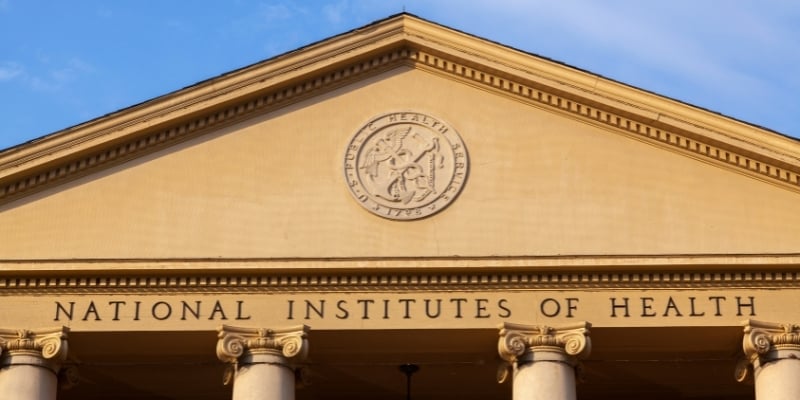The gleaming new Anschutz Health Sciences Building was an appropriate locale for a gathering of professionals and students intent on sharing and exploring the latest ideas and issues animating public health.
The inaugural Colorado School of Public Health (ColoradoSPH) Research Exchange, held on September 23, was an opportunity to highlight “innovative ideas bubbling up,” and “cross-cutting public health themes,” said Dr. Cathy Bradley, ColoradoSPH’s Associate Dean for Research, who organized the event.
The in-person forum featured poster presentations of the research work completed by two dozen ColoradoSPH doctoral students, the top four of whom each earned $500 prizes. Attendees also heard and contributed to panel discussions of timely topics led by public health, clinical and policy experts. A public health careers panel helped to expose undergraduate and graduate students to the breadth of employment and educational opportunities in public health. Bradley noted the growing emergence of ColoradoSPH as a national research leader. The school ranked 18th in National Institutes of Health funding in 2021 (up from 23rd the year before), reflecting an increase of nearly $9 million over the same period. All externally funded research, including NIH and other organizations, for the school totaled $38 million in 2021, Bradley added.
“We have been incredibly successful on the research front,” she said.
After brief remarks from Bradley and ColoradoSPH Dean Jon Samet, a crowd of about 200 heard a keynote address from Dr. Alonzo Plough, chief science officer and vice president of Research-Evaluation-Learning for the Robert Wood Johnson Foundation (RWJF). Plough described RWJF’s Culture of Health initiative and its National Commission to Transform Public Health Data Systems.
In his wide-ranging presentation and during questions and answers that followed, Plough emphasized the need for the healthcare system to be “continuously critical” and “self-examining” of its “canons,” or established core beliefs. The COVID-19 pandemic, he argued, exposed the system’s failure to meet the needs of many in underserved communities or to confront the structural racism that blocks equal access to care.
“We do not have vulnerable people,” Plough said. “People live in conditions that create vulnerability.”
Plough emphasized the need for professionals to use the “lived experience” of community members, and modernize data systems to ensure that factors like race and gender are included as evidence in documenting and addressing public health challenges. He also urged providers to maintain a “hyper-local focus” on broad problems – climate change, gentrification, and addiction, for example – that may affect individual communities differently.
“Billions are waiting to be spent on data modernization,” Plough concluded. “My expectation is that many of you are going to be the engine of this change going forward.”
After Plough’s address, audience members had a choice of various panel presentations covering big data ethics, new methods in public health research, putting research into practice, social justice, climate change and health, infectious disease and modeling, and academic public health careers.
Panel speakers covered wide and varied ground and highlighted some of the most difficult public health problems – and therefore most in need of additional research and practice. For example, Dr. Sarah Stella, an internal medicine physician and hospitalist at Denver Health, highlighted her work in caring for Denver’s large homeless population. Stella, who has long experience working with community members and organizations to find meaningful solutions for homelessness and housing insecurity, noted that a recent survey of patients at Denver Health and UCHealth University of Colorado Hospital showed that nearly 30% fell into those categories.
“Homelessness leads to health inequity,” Stella said, adding that the average expectancy for a homeless individual is 50 years – a figure that corresponds to those who lived in 1910. On the other hand, she added, “housing is healthcare” because of its stabilizing influence on people’s lives. However, the two are interdependent and need to be coordinated with infrastructure she compared to “connective tissue” that aligns healthcare systems with community resources and support. During the panel on climate change and health, Dr. Katherine James, associate professor of environmental and occupational health and epidemiology in ColoradoSPH, discussed her work with residents of the San Luis Valley on water and air problems. Both are products of climate change, James said.
“Drought in Colorado is a permanent fixture,” she stated. In the San Luis Valley, the result is decreasing snowpack, depleting aquifers, drying wetlands, increasing layers of dust and more frequent and intensifying wildfires, she added. These issues lead to dehydration and heat-related illness, as well as poor air quality – the San Luis Valley has higher than average asthma rates – and mental health problems among agricultural workers.
Touching on a theme Stella had expressed about homelessness, James said these climate change-related health issues are interrelated and complex and can’t be solved unless researchers and community members work together and listen to one another. She pointed out that people living in the San Luis Valley are familiar with the climate changes they face and are, by definition, invested in finding solutions that work for them.
“You have to humble yourself to communicating with those you are working with,” James told the audience. “We think we [public health professionals] have all the answers but we don’t.”
With these and many other issues put on the table, and the first research exchange successfully completed, Bradley said she looks forward to others following. “There were so many provocative ideas presented today. I don’t know how anyone would not be inspired to pursue a career in public health and generate and interpret research to inform the most important public health decisions we face,” she said.
“We hope to build a tradition,” Bradley added. “We want to establish that an expected part of our school is featuring our research.”






